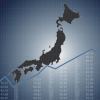Equity
Global equity outlook 2024
We are heading into a changing world, where the more recent past can no longer be relied on to guide our path forward. But we are not blindfolded. There are tools we can use to provide a greater degree of certainty. Our Future Quality approach is designed to help us identify franchises that are set to endure.
Japan equity outlook 2024
We expect 2024 to be a year of domestic consolidation and long-term reform measures, where markets are driven more by Japan-specific events than by global factors. After decades of deflation, we see Japan as finally breaking out of this cycle in 2024, as it enters a virtuous cycle of price increases and wage hikes.
China equity outlook 2024
For those willing to brave immediate challenges, we believe China will continue to offer long-term opportunities as the country has been working to become technologically self-sufficient and develop high-end technologies on its own in a more challenging regulatory environment.
ASEAN equity outlook 2024
We believe ASEAN will offer good pockets of growth and quality opportunities, as well as earnings resilience and protection amid some of the prevailing global macro headwinds.
Singapore equity outlook 2024
We believe that our “New Singapore” narrative focusing on sectors and companies that represent the future of the city-state will remain relevant in 2024. Energy transition has risen to prominence within the New Singapore narrative in addition to data, technology, healthcare, logistics, tourism and food solutions.
Asian equity outlook 2024
Considering that major tech companies are profitable, cash rich and cannot afford to lose out in the highly competitive AI race, spending on high-end computing and neural networks looks set to continue in 2024. This will likely create a lasting boon to many component suppliers (the so-called picks and shovels of AI) across Asia.
As the developed world continues to struggle with inflation and a lack of growth, Asia stands out as the bright spot, with inflation well in check and monetary cycles peaking ahead of the West. Growth in Asia is also expected to outperform the West over the next few years, reversing a decade-long trend of developed world growth outperformance.
Financials, healthcare and energy buck the trend and rise in a down market.
On the Ground in Asia-Monthly Insights: Asian Fixed Income-March 2023
Against a backdrop of a more stable bond market, we prefer relatively higher-yielding Philippine, India and Indonesian government bonds. In addition, there appears to be early signs suggesting that inflationary pressures in these countries have likely peaked, which we see providing further support for these bonds. As for currencies, we expect the Thai baht and Indonesian rupiah to outperform regional peers.
Harvesting Growth, Harnessing Change - Monthly Insights: Asian Equity-March 2023
In a world starved of workers and growth, we believe that Asia’s ability to supply both puts the region on a very firm footing over the longer term. Once we get through this current US-led rate tightening cycle and the flush out of weaker financial institutions in the West, we see a bright future for Asia, which is now trading at extremely attractive valuations.
Thoughts on the 2023 China National People’s Congress
The official GDP growth target of “around 5%” unveiled at China’s annual National People’s Congress was lower than many external forecasts, and fiscal policy looks less accommodative relative to both market expectations and that of 2022. In our view, these conservative targets leave room for outperformance and likely reflect cautiousness over unexpected events and reluctance in overstimulating the economy.
Global Equity Quarterly (Q4 2022)
Current equity market conditions dictate that you choose your investment attire particularly carefully. In our view, buying profitless technology companies is like going up a Scottish mountain wearing flip-flops. You might get away with it, but the odds are not in your favour. Instead, we prefer the protection afforded by profits (and cash) generated today—not at some unspecified point in the future.
On the Ground in Asia-Monthly Insights: Asian Fixed Income-January 2023
We maintain the view that global inflationary pressures may moderate further. We prefer Singapore, South Korea and Indonesia bonds. As for currencies, we favour the renminbi, the Singapore dollar and the Thai baht.
Harvesting Growth, Harnessing Change - Monthly Insights: Asian Equity-January 2023
Asian equities made a strong start to 2023, with the MSCI AC Asia ex Japan Index returning 8.2% in US dollar (USD) terms in January, supported by a rebound in investor sentiment towards China.
Harvesting Growth, Harnessing Change - Monthly Insights: Asian Equity-December 2022
Chinese shares outperformed in December as the country continued to move away from its zero-COVID policy while markets in Taiwan and South Korea slumped amid concerns towards the global economy. In ASEAN, Thailand led the region as the country is expected to be one of the biggest beneficiaries of a potential return of Chinese tourists.
On the Ground in Asia-Monthly Insights: Asian Fixed Income-December 2022
We expect global inflation to ease and global growth to weaken in 2023; we also think that the Fed is likely to pause hiking rates by the first quarter of 2023. Against this backdrop, we are broadly constructive on regional bonds as most Asian central banks could be nearing the end of their rate hike cycles.
Harvesting Growth, Harnessing Change - Monthly Insights: Asian Equity-November 2022
Asian stocks rebounded strongly in November after Federal Reserve Fed Chair Jerome Powell pointed to slower pace of monetary policy tightening and lifted market sentiment. All Asian markets ended in positive territory, with China in the lead with a month-on-month (MoM) gain of 29.7%.
On the Ground in Asia-Monthly Insights: Asian Fixed Income-November 2022
We are more positive on duration overall, on the assessment that we are likely past peak hawkishness from the Federal Reserve and other developed market central banks. We favour Singapore and South Korean government bonds, given their relatively higher sensitivity to stabilising US Treasury yields.
2023 Global equity outlook
Some of the factors that have shaped 2022 look less likely to recur in 2023 (for instance, supply chain duress because of COVID containment) but others will likely last longer (most notably a higher cost of capital). We are cautiously optimistic that less aggressive monetary policy will eventually make 2023 a kinder year for equity markets but there may yet be shocks to overcome.
2023 Singapore equity outlook
We expect a moderation of growth, a peak in inflation and a more accommodative monetary policy in 2023. We see this as a positive for Singapore, as we believe a more accommodative policy backdrop will help support continued expansion in corporate earnings growth in 2023.
2023 China equity outlook
We believe that the rewards will outweigh the risks related to China amid an existence of enough cyclical, thematic and structural trends that could enable the country to outperform in 2023; particular focus will be on the government’s zero-COVID policy and its support for the property sector.
2023 Asian equity outlook
As we look towards 2023, it is easy to be overwhelmed by the broader permutations of possible outcomes. But things don’t appear so dire in Asia. Inflation, which is effectively a value transfer from net consumers to net producers, may continue to benefit India and pockets of ASEAN due to favourable demographics and rising productivity.
2023 Japan equity outlook
As geopolitical risks and globalisation are reassessed in the wake of the COVID-19 pandemic and war in Europe, we believe that Japan stands to benefit as more companies refocus on their home markets.
Global Equity Quarterly (Q3 2022)
The low for this bear market could be a lot closer at hand now than it was, with equity valuations having fallen considerably. We remain focused upon assessing our companies’ ability to deliver earnings expectations and cash generation. These give us confidence in the long-term, even if shorter-term developments remain volatile.
Harvesting Growth, Harnessing Change - Monthly Insights: Asian Equity-August 2022
The regional index of the MSCI AC Asia ex Japan in August was flat at 0.0% in US dollar terms, recovering after falling into negative territory earlier. The North Asian region was weighed down by foreign currency effects, trailing behind its ASEAN counterpart. India benefitted from its rate hike and lower oil prices.
Global Equity Quarterly (Q2 2022)
Our belief is that we have moved into a new regime where inflation will be structurally higher despite the anchors of high debt burdens, ageing societies and ongoing technological disruption.
Harvesting Growth, Harnessing Change - Monthly Insights: Asian Equity-July 2022
Higher commodity prices impacted returns in Asia, while a slip in prices of crude oil and metals benefitted many Asian nations. We expect the future trajectory of inflation to dictate the path of interest rates, which in turn is seen determining economic growth globally.
Fears of a recession and the US CPI hitting a four-decade high of 8.6% year-on-year in May rippled through various economies. Asian markets took heed from the multiple headwinds in the US, with inflation being a common theme across the region. For the month, the MSCI AC Asia ex Japan Index fell by 4.5% in US dollar terms.
Japan’s “new form of capitalism” in review
We review the “new form of capitalism”, a government plan to boost economic growth initiated by Japanese Prime Minister Fumio Kishida, who is enjoying a high public approval rating ahead of a closely watched upper house election.
Asian markets were downcast in April as investors were concerned about inflation and the likelihood of a larger-than-expected rate hike by the US Federal Reserve. For the month, the MSCI AC Asia ex Japan Index fell by 5.2% in US dollar (USD) terms.
Global Equity Quarterly (Q1 2022)
We are keen to participate in the push towards a less carbon intensive future but want to do so in a balanced fashion, with one eye on the associated risks.
Harvesting Growth, Harnessing Change - Monthly Insights: Asian Equity-March 2022
Asian stocks declined in March, dragged down by the Russia-Ukraine conflict. Lingering concerns over inflation also weighed on the equities markets. For the month, the MSCI AC Asia ex Japan Index fell by 2.8% in US dollar terms.
Have you ever stopped to imagine what would happen if the world’s central banks spent just over a decade pouring USD 25 trillion of liquidity into the economy with more than 60% of that liquidity created in the last two years? In this article, we’ll try to assess what has happened and think about how investors should navigate the next phase of the greatest financial experiment of all time.
Harvesting Growth, Harnessing Change - Monthly Insights: Asian Equity-January 2022
Asian stocks had a tough start to 2022 amid concerns that persistent inflation could cause any tightening by the US Federal Reserve (Fed) to be more aggressive than expected. For the month, the MSCI AC Asia ex Japan Index fell by 3.10% in US dollar (USD) terms.
India: Reaping growth from change
Going back to India for a month after two long years of not being able to visit my family, I was pleasantly surprised by the new normal. While there has been much adversity, COVID-19 has also sparked positive change, especially on technology adoption.
Global Equity Quarterly (Q4 2021)
An ability to look forward to better times and remain optimistic is invaluable. These attributes are no less helpful when investing in equities. Whilst you can get an unpleasant surprise from misjudging the direction of the tide while enjoying your picnic, the consequences for misjudging the direction of the liquidity waves look more pronounced than ever as we enter 2022.
Harvesting Growth, Harnessing Change - Monthly Insights: Asian Equity-December 2021
Taiwan and South Korea were buoyed by strong exports as sustained global demand for electronics supported hardware tech stocks amid widespread supply chain disruptions. The ASEAN region saw mixed returns. Thailand was the best performer as policymakers approved new stimulus measures to support domestic consumption, while the Philippines had to delay COVID-19 vaccinations on the back of Typhoon Rai.
2022 Asian Equity Outlook: Well positioned to navigate tightening
We believe that Asian economies are well positioned to navigate monetary tightening in the US. Government finances are healthier, as are corporate balance sheets. Most Asian economies are digitising faster than their western peers, while consumption is set to receive a meaningful boost from economic reopening.
2022 Global Equity Outlook: Disruption sharpens the focus on Future Quality
The initial discovery of the Omicron variant was met with fairly sensational reporting by some of the world’s media and this fed through quickly into investor sentiment. It is probably true, however, that even if Omicron had not surfaced it was probably about time that investors were again reminded of the volatility that resides in markets, despite the mollifying impact of endless liquidity injections by central banks.
2022 Japan Equity Outlook: ESG to bring Japan to the fore
ESG initiatives are expected to become ever more important for companies and investors around the world in 2022. We expect many Japanese companies to come to the fore amid this global shift towards ESG, with enhancements in ESG disclosures shedding light on their value creation opportunities amid the current drive towards decarbonisation.
2022 Singapore Equity Outlook: Focusing on sustainable growth
The Singapore economy is on a road to recovery. Although the economy has already rebounded sharply in 2021, we expect the recovery theme to remain intact and continue supporting the Singapore economy in 2022. We see a broadening of growth within Singapore’s key economic engines in 2022, with a sharper recovery expected in the services sector as the economy reopens.
2022 China Equity Outlook: Focusing on new market leaders
Amid a flurry of headlines, investors may have largely overlooked the significant number of recent positive developments in China, such as initiatives directed towards ambitious renewables targets, the continued opening up of the financial sectors and support for a significant number of industries including AI and big data. We believe these areas could become the new leaders of China’s capital markets, representing investment themes for the next several decades.
Harvesting Growth, Harnessing Change - Monthly Insights: Asian Equity-November 2021
Asian stocks fell in November on concerns that the spread of the new Omicron COVID-19 variant could derail global reopening plans and delay economic recoveries.
Future Quality Insights - December 2021 - A trip to Lisbon
Just a few weeks ago I attended my first in-person conference since 2019. Over 40,000 people descended upon Lisbon for Web Summit, one of the world’s largest technology conferences. The event brings together CEO’s and founders of established firms together with start-ups and policymakers to discuss and pitch ideas over the course of a week.
Asian stocks rose in October, with investors remaining focused on rising inflationary pressures and the US Federal Reserve’s tapering plans. The markets’ key concern is China’s economic performance and its impact on the energy and commodity complexes.
Global Equity Quarterly Q3 2021
Our philosophy is centred on the search for “Future Quality” in a company. Future Quality companies are those that we believe will attain and sustain high returns on investment. ESG considerations are integral to Future Quality investing as good companies make for good investment.
Asian Equity Monthly - September 2021
Asian stocks fell in September, with concerns about China’s growth outlook and the US Federal Reserve (Fed)’s taper plan being the key drivers of sentiment. For the month, the MSCI AC Asia ex Japan Index declined by 4.2% in US dollar (USD) terms.
Latin America: Supplier to a commodity-hungry world
Inflation is on everyone’s mind. From central bankers to bakers, it is one of the biggest topics of discussion. The prices of many commodities are rising sharply. The reasons vary. Supply constraints, sharp rise in demand or bad weather—take your pick.
Staying adaptive to an evolving recovery
The world is settling into a new normal that is likely to look quite different from pre-COVID-19 norms. This includes different patterns of demand shaped by learning to live with the virus and an ongoing fiscal thrust with firm policy objectives.
Asian Equity Monthly - August 2021
Asian stocks gained in August. While concerns about the spread of the Delta variant weighed on markets at the beginning of the month, the US Federal Reserve (Fed)’s dovish commentary and a rebound in the battered Chinese technology (tech) sector lifted sentiment towards the month-end
Future Quality Insights - August 2021
The Tokyo summer Olympics have been a welcome distraction over the last few weeks and well done to Japan for hosting the games so successfully in the current environment. In particular it is inspiring to see the years of preparation and planning being showcased by the top competitors in their respective sports.
Asian Equity Monthly - July 2021
Asian stocks suffered losses in July, weighed down by the selloff in Chinese equities following Beijing’s regulatory crackdown on the private tutoring and technology-related sectors.
Global Equity Quarterly Q2 2021
Our philosophy is centred on the search for “Future Quality” in a company. Future Quality companies are those that we believe will attain and sustain high returns on investment. ESG considerations are integral to Future Quality investing as good companies make for good investment
Further improving Japan’s equity culture and wealth
Japan’s economy should boom after the Olympics burden passes. Its stock market will likely rebound sharply too, but one item that has limited Japan’s equity culture, and thus, its wealth, especially for wary pensioners, is overly conservative guidance by corporations for upcoming fiscal year earnings.
Asian Equity Monthly - June 2021
Asian stocks edged lower in June, partly weighed down by a recent spike in COVID-19 cases in the region. Lingering worries about rising inflation and fears of a faster-than-expected tapering of the US Federal Reserve’s quantitative easing programme also dampened sentiment.
Asian Equity Monthly - May 2021
Supported by optimism about the region’s ongoing economic recovery, Asian stocks delivered decent gains in May, shrugging off concerns about a spike in COVID-19 cases in several Asian countries and persistent worries about inflation.
Japan Equity Monthly - May 2021
We explain why corporate earnings in FY21 are expected to begin reflecting recovering confidence among Japanese companies as vaccine rollouts gain momentum. We also look into the BOJ’s trial run for a digital yen and the impact such a currency could have on the economy and markets.
Asian Equity Monthly – April 2021
Asian stocks turned in decent gains in April on optimism about the region’s economic recovery, especially after China and several other Asian countries reported better-than-expected 1Q21 GDP growth. The MSCI AC Asia ex Japan Index gained 2.5% in US dollar (USD) terms over the month.
Net zero carbon: Is it all just hot air?
"Nowadays people know the price of everything and the value of nothing", quipped Oscar Wilde.
Japan Equity Monthly - April 2021
We gauge Japan’s slow vaccine rollout from an economic perspective and assess the shift in work styles that occurred during the pandemic and its potential impact on real estate prices.
The case for Asian small caps
Exhibiting an extensive track record of outperformance versus big caps and offering good diversification from traditional equities, we believe that Asian small-cap stocks provide numerous investment merits for long-term investors.
Global Equity Quarterly Q1 2021
Our philosophy is centred on the search for “Future Quality” in a company. Future Quality companies are those that we believe will attain and sustain high returns on investment. ESG considerations are integral to Future Quality investing as good companies make for good investment.
Asian equity monthly – March 2021
Asian stocks succumbed to profit-taking in March as hopes over a vaccine-led regional economic recovery were overshadowed by persistent reflationary concerns and rising global bond yields. The MSCI AC Asia ex Japan Index fell by 2.5% in US dollar (USD) terms over the month.
Palm oil investing through an ESG lens
Does investing in palm oil companies pose a controversy or present an opportunity? Here is a deep-dive analysis of the palm oil sector and the material ESG issues facing it. All in all, we believe that positive ESG changes represent a strong opportunity for palm oil companies, and we look for candidates that strive towards sustainability goals and exceed their ESG targets.
Japan Equity Monthly - March 2021
We provide our view on the Bank of Japan’s latest policy review, under which the central bank decided to allow long-term rates to fluctuate in a wider band and removed its annual target for ETF purchases. We also assess the barring of foreign spectators from the Olympic games.
Asian equity monthly – February 2021
Asian stocks gained in February as investors upheld optimism about a vaccine-led regional economic recovery. The MSCI AC Asia ex Japan Index rose 1.2% in US dollar (USD) terms over the month.
Japan Equity Monthly - February 2021
We assess the factors that enabled the Nikkei to rise above the 30,000 threshold for the first time since 1990; we also view the recent Robinhood frenzy from a Japanese market perspective.
Future Quality Insights - March 2021
The introduction of the EU’s Sustainable Finance Disclosure Regulation in March 2021 will see significant changes to the way asset management is conducted. It includes new disclosure requirements for investment firms to address environmental, social and governance (ESG) concerns and we welcome it with open arms.
Asian equity monthly – January 2021
Asian stocks brushed aside uncertainties posed by new COVID-19 variants and climbed higher in January. The MSCI AC Asia ex Japan Index rose 4.1% in US dollar (USD) terms over the month.
Ample upside room for slow recovering J-REITs
In 2020 the COVID-19 pandemic negatively affected a wide variety of Japanese assets, including the real estate investment trust (J-REIT) market. J-REITs have bounced back since, but their recovery has been sluggish compared to the Japanese equity market’s rebound. Despite the slower recovery, we believe J-REITs have ample upside room once the rise gathers pace.
Japan Equity Monthly - January 2021
We discuss Japan’s robust manufacturing sector and why it is not about reclaiming the past; we also take a look at the BOJ’s ETF purchases amid the current rally by equities.
Global Equity Quarterly Q4 2020
Our philosophy is centred on the search for “Future Quality” in a company. Future Quality companies are those that we believe will attain and sustain high returns on investment.
Asian equity monthly – December 2020
Asian stocks turned in solid gains in December, buoyed by optimism about a vaccine-led global economic rebound, fresh US fiscal stimulus and robust economic data from China. The MSCI AC Asia ex Japan Index rose 6.8% in US dollar (USD) terms over the month.
Japan Equity Monthly - December 2020
We look into the potential economic impact of Japan’s attempt to become carbon neutral. We also analyse why Japan’s fiscal condition draws little attention although the country is on course to spend a record amount in its upcoming budget.
2021 Global Equity Outlook
We continue to spend the vast majority of our time on company research and there are doubtless other observers better placed to predict which path that the market will go down, but it seems more likely to us that the future will look much like the pre-COVID-19 recent past. For instance, central banks have become increasingly politicised in recent years. At the same time, many national governments are more indebted than ever, having rushed through huge wage support programmes—designed to postpone a severe economic reckoning as a result of the lockdowns that they imposed.
2021 Japan Equity Outlook
We believe 2021 will be remembered as a year that marked the beginning of the end of the COVID-19 crisis as the world develops vaccines to counter the pandemic. In Japan, we expect a gradual recovery of its economy in 2021, as the pandemic’s impact lessens, and economic activity normalises.
2021 Singapore Equity Outlook
Following the negative performance of 2020, we believe 2021 could see better returns and a recovery for Singapore equities. We believe equity returns will remain supported by the re-opening of the Singapore economy and expect an improved market performance in 2021. With the backdrop of fewer global trade conflicts, accelerating exports, accommodative policy, higher return on equity and low foreign ownership, we expect the outlook for 2021 earnings to improve and that should support better market returns.
2021 China Equity Outlook
Despite the pandemic, markets in China were resilient and we believe that they will continue to reach new highs in 2021. Structural factors that drove the Chinese markets in 2019 and 2020 remain intact and strong leadership enabled the Chinese markets to be among the best performing (if not the best performing) markets in the world. In addition to the structural factors that we have highlighted repeatedly over the past few years, such as import substitution trends, high value-added manufacturing and deep penetration and consumption of e-commerce, new structural factors have started to emerge that stoke our optimism towards the Chinese markets.
2021 Asian Equity Outlook
Asian countries have, by and large, handled the COVID-19 pandemic better than their western counterparts and are now emerging from that nadir. Most of these countries have plenty of fiscal and/or monetary stimulus headroom. And this superior growth and better national finances are available at a significant discount to developed markets. A languid US dollar will enhance local currency returns in these “risk assets”.
Beyond the pandemic: Identifying sources of alpha in Japan
The global markets surged in 2020 despite the COVID-19 pandemic. While we expect the liquidity-driven rise to continue for a while, we should be prepared for the tide to eventually turn. We identify Japanese industries, notably “Delta ESG” stocks, that could become sources of alpha in the post-pandemic world.
Investing for the Long Term: 'Future Quality' Companies
The Nikko Asset Management Global Equity team philosophy is based on the belief that investing in ‘Future Quality’ companies will lead to outperformance over the long term. This paper draws on academic evidence to outline the three fundamental concepts which underpin our definition of ‘Future Quality’ investments.
Global Investment Committee Outlook: Especially buoyant non-US equities
Although some on the committee agreed with the market consensus for a moderate continuation of economic growth and equity markets, and a few were even more cautious, especially regarding increased fears of inflation later in 2021, the majority agreed with a more positive scenario in which the global economy outperforms market consensus, while equities, especially those outside of the US, rally sharply.
Efficiency of Japanese corporate investment in human capital and shareholder value
Japan struggles with an aging and shrinking population and it is important for the country, both from an economic and social perspective, to improve its relatively low labour productivity by efficiently utilising its human resources.
Asian equity monthly – October 2020
US presidential election jitters and an uptick in COVID-19 cases in the US and Europe triggered a downturn in global equities in October. Asian stocks, however, managed to turn in decent gains for the month, owing to a slowing pace of COVID-19 infections in the region and growing optimism over China’s economic recovery. The MSCI AC Asia ex Japan Index rose 2.8% in US dollar (USD) terms over the month.
Japan Equity Monthly - October 2020
We discuss the reasons behind the Japanese equity market’s recent outperformance and the factors likely required for the gains to be sustainable in the longer term. We also assess the recent surge by the Mothers Index and key points to watch going forward.
US presidential election – Nikko AM’s views
In order to gain a range of perspectives on the US presidential election, Nikko Asset Management has gathered the views of the following experts and investment teams, representing many of our major asset classes and geographical regions.
Adapting to the “new normal”: Japan’s paradox
With the global outbreak of COVID-19 in the first half of 2020, the world was turned upside down. Under such circumstances, Japanese companies are now faced with new challenges to adapt to this “new normal”.
Asian equity monthly – September 2020
After three consecutive months of strong gains, Asian stocks finally succumbed to profit taking in September triggered by concerns that the global recovery from the COVID-19 pandemic could be running out of steam.
Maintaining Prosperity During Turmoil
Although the coronavirus outbreak has caused major disruptions and geopolitical risk is on the rise, markets are looking forward to recovery. In what appears to be a rapidly changing world, many things remain the same and indeed, may be changing for the better.
Internet healthcare - a reset of healthcare delivery in Asia
The Covid-19 pandemic has accelerated the adoption of internet-based healthcare services. Growing in importance, penetration and acceptance, telemedicine will revolutionise and augment Asia’s healthcare systems.
Japan Equity Monthly - September 2020
Yoshihide Suga, Japan’s new prime minister, is widely expected to retain his predecessor’s fiscal and monetary policies known as “Abenomics”.
Global Investment Committee Outlook: A new regime ahead
Clearly, it remains difficult to predict events in this volatile environment, but in the interest of our clients, we do our best and fortunately this time, we had virtually unanimous agreement on a similar scenario as in June, both politically and economically.
ASEAN equities: Uncovering opportunities in uncertain times
The price bifurcation of ASEAN equities this year caused by the COVID-19 pandemic is creating ample stock-picking opportunities for long-term investors. Read on to find out which markets and sectors in the ASEAN region that we have the highest conviction in.
Asian equity monthly – August 2020
Asian stocks posted gains for the third consecutive month, boosted by positive COVID-19 vaccine developments around the world, the persistently weak US dollar (USD) and resilient Chinese economic data.
Future-proof your portfolio with global internet companies
Internet companies have gone from strength to strength, dramatically outperforming the broader market year-to-date.
SugAbe-nomics
It does not seem that there are enough differences between Abenomics and the proposed economic policies of likely new Prime Minister Suga to justify the completely new portmanteau “Suganomics,” as a few analysts have suggested.
Japan Equity Monthly - August 2020
In late August the Nikkei made a full recovery from the "Corona shock" lows touched in March, amid initiatives by the government and the central bank.
The Buffett fillip
Although it is fairly clear that Buffett’s investment is not just a passive one in that he intends to collaborate on business ventures with these trading companies, the fact that the world’s most famous investor has committed to such large sums has ramifications for both domestic and international perceptions about Japanese equities.
Japan’s Abe situation part 2
Many media reports are suggesting that Yoshihide Suga is leading the race to be Japan’s next prime minister, with a main question being whether he, without a large faction of his own, will just be a temporary placeholder for new leader.
Japan's Abe Situation
It is attention-grabbing for some analysts and soothsayers to speculate on politics, but this is no casual matter.
























































































